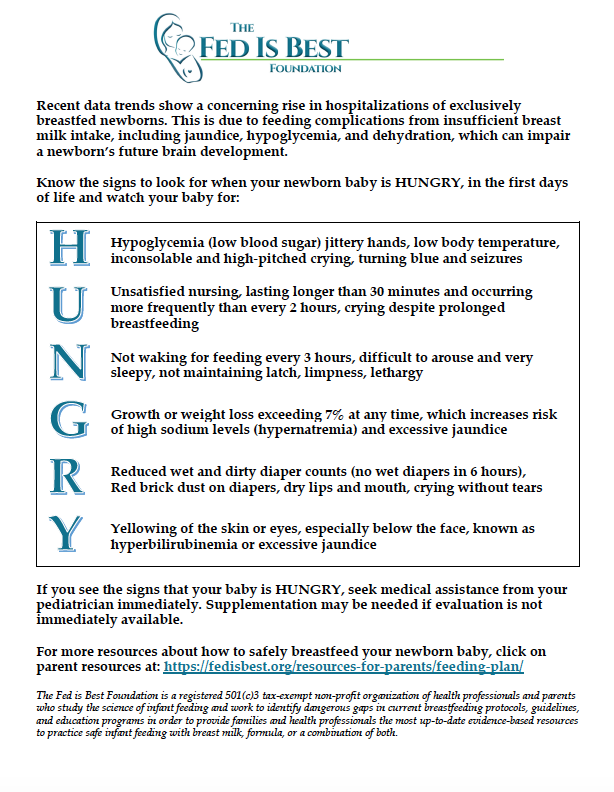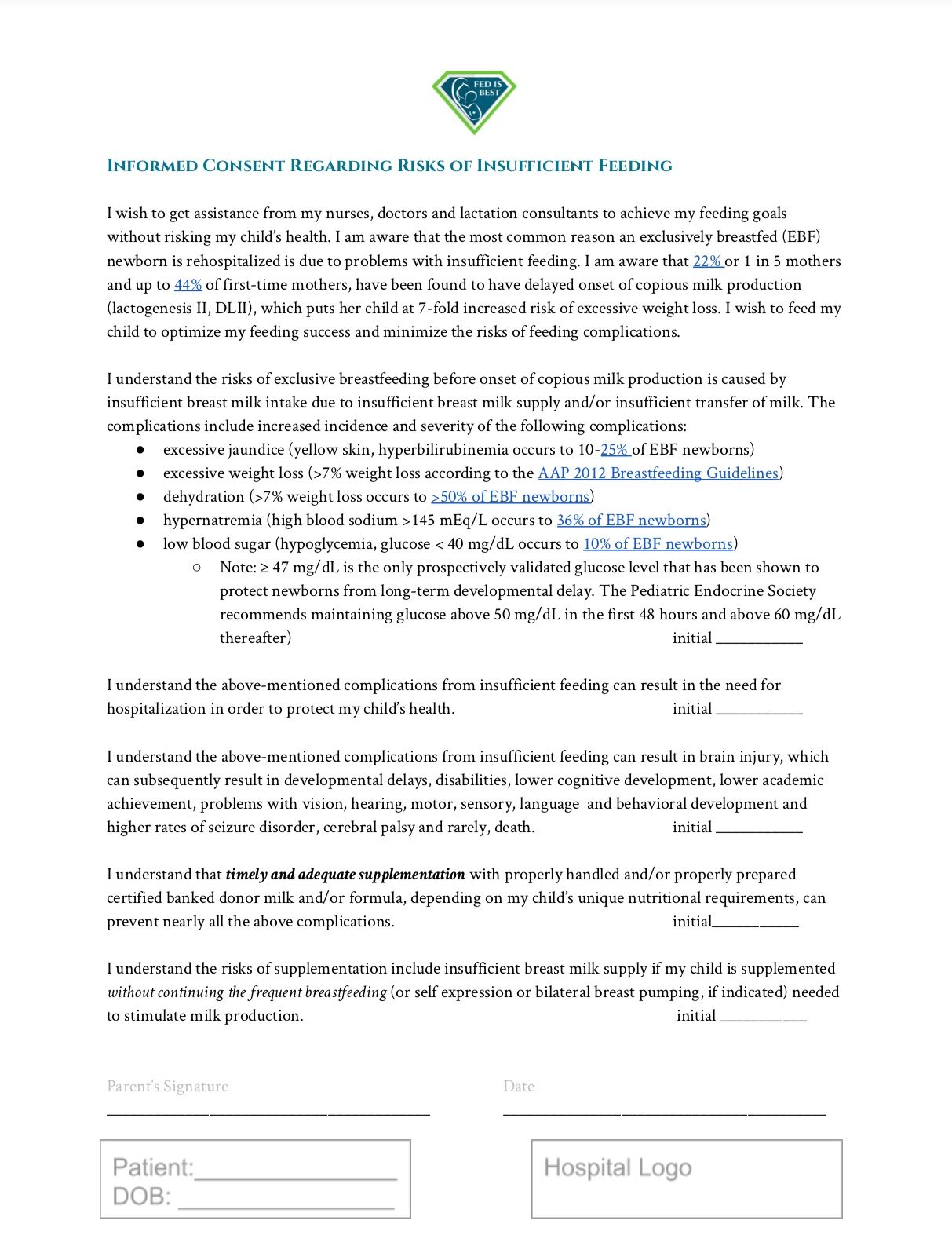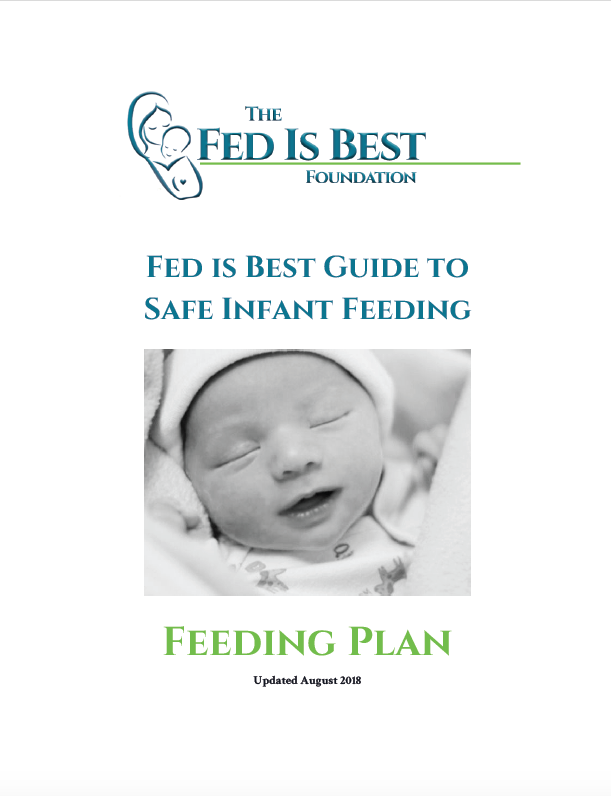The most important duty of hospitals and health professionals is to respect patient autonomy and ensure patient safety. One of the most important ways health professionals and hospitals preserve patient autonomy and safety is to provide them all the information required to make safe decisions regarding their infant’s health. Complications related to insufficient feeding of exclusively breastfed newborns are among the leading causes of newborn hospitalization in the world, which not only result in costly and preventable hospitalizations, but can also result in injury to the brain and vital organs and permanent disability among previously healthy newborns. These newborns are commonly showing hours of distress in the form of persistent crying, constant unsatisfied nursing, rapid weight loss, other signs of dehydration, jaundice and hypoglycemia, which slowly progress to poor ability to feed, lethargy, seizures and, rarely, death. Brain injury and critical illness from insufficient feeding should be “never events” and it is our responsibility as health providers and health care systems to prevent these tragedies at all costs.
Below is an informed consent form intended to protect patient safety and autonomy by providing full information regarding increased risks of insufficient feeding among exclusively or near-exclusively breastfed newborns before copious milk production, as well as their short- and long-term consequences.
Informed Consent for Risks of Insufficient Feeding
Many parents who have been informed of the risks of insufficient feeding may choose to outline their preferred infant feeding method and their preferences for supplementation if insufficient feeding problems occur. The following feeding plan has been prepared by the Fed is Best Foundation:
Next: Baby-Friendly Complications




